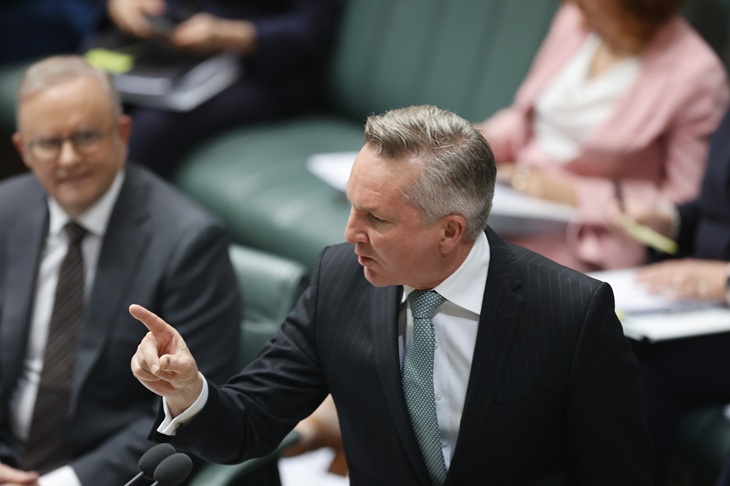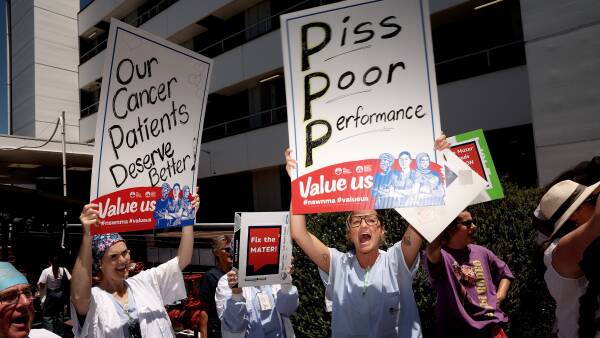
CANBERRA, AUSTRALIA - OCTOBER 09: Minister for Climate Change and Energy the Hon Chris Bowen, responds to a question in Question Time on October 09, 2025 in Canberra, Australia. Australia's parliament convened for sittings as a number of pressing issues come to the fore, from inflation and cost of living domestically to Australia's relationship with its allies in the region and beyond internationally. (Photo by Hilary Wardhaugh/Getty Images)
UPDATE: As governments rush to achieve Net Zero emissions, critical challenges are emerging that threaten to derail these ambitious plans. Recent assessments highlight that urgency alone cannot replace effective strategies in this race against climate change, leading to significant setbacks and public frustration.
Authorities across Australia and Europe are facing mounting criticism for prioritizing speed over sound policy-making. From Snowy 2.0—intended as a flagship renewable energy project now plagued by cost overruns and delays—to the broader struggles within Europe’s energy transition, the fallout is becoming evident.
The push to achieve Net Zero has transformed into a high-stakes political contest, reminiscent of an Olympic event, where governments vie to claim climate leadership. However, the consequences of this haste are stark. Many projects, including high-speed rail initiatives, remain unfulfilled, exposing a disconnect between political promises and actual progress.
Recent data shows that 79% of Australians prioritize affordability over strict Net Zero deadlines. This sentiment underscores a growing demand for a pragmatic approach to climate action. As one official noted, “We cannot afford to compromise our economic stability in the name of a hastily set timeline.”
The 2025 federal election revealed deep divisions within political parties, with the Coalition struggling to define its stance on climate policy. This internal conflict has led to a perception that both major parties are failing to offer clear solutions, leaving voters disillusioned. In contrast, Republicans in the United States have unified against arbitrary Net Zero targets, favoring market-driven solutions.
The urgency of the situation calls for a reassessment of strategies. Experts recommend a shift away from rigid deadlines towards a more flexible, market-led transition.
“Let nuclear, renewables, gas, and emerging technologies compete on open ground,”
stated a prominent economist. This could foster innovation and efficiency, allowing the market to dictate the pace of change rather than political pressures.
As public anxiety over economic stability grows, the call for a balanced approach is becoming louder. Citizens are expressing their concerns about the feasibility of current policies, urging the government to focus on practical solutions that do not compromise their livelihoods.
If governments continue to treat the transition to Net Zero as a race, the risk of failure escalates. The solution lies in allowing space for innovation and fostering an environment where progress is not dictated by a ticking clock. A measured approach could lead to sustainable outcomes that benefit both the economy and the environment.
The stakes are high, and the world is watching. As this situation develops, the need for effective, pragmatic climate policies has never been more urgent. Stakeholders must act quickly to ensure that the path to Net Zero is not only achievable but also sustainable in the long run.
Stay tuned for further updates as this critical issue evolves.






